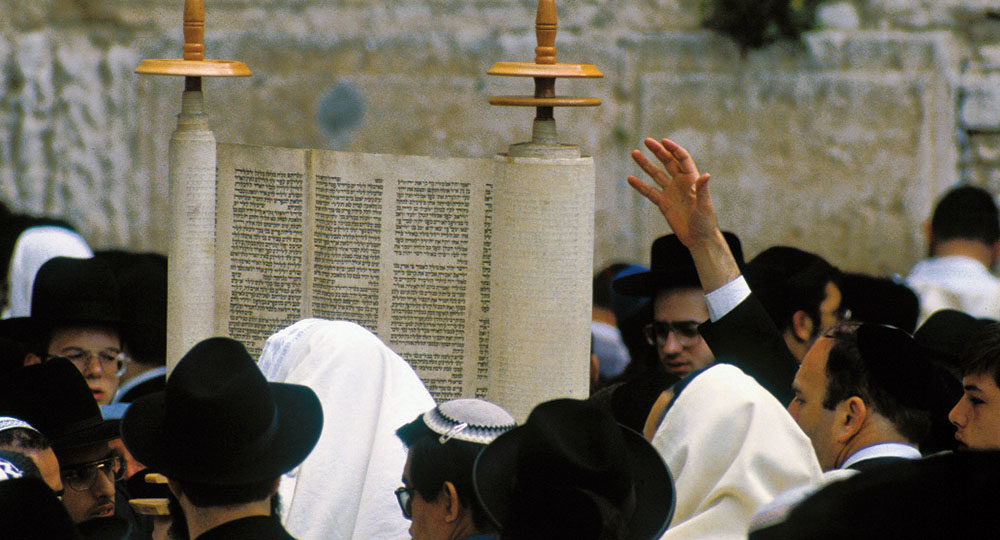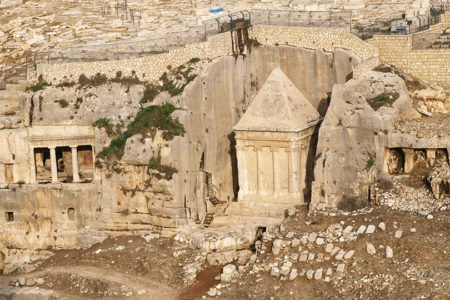For You and For Me
It was worse than a nightmare. There Mary stood as her son Jesus hung on a Roman cross between two criminals. With her sister Salome, Mary the wife of Clopas (probably her sister-in-law),1 and Mary of Magdala, she watched the horror of the crucifixion play out before her.
Some 33 years earlier, the Jewish girl had presented her infant son to the Lord; and a man named Simeon accurately predicted her future anguish:
Behold, this Child is destined for the fall and rising of many in Israel, and for a sign which will be spoken against (yes, a sword will pierce through your own soul also), that the thoughts of many hearts may be revealed (Lk. 2:34–35).
Simeon’s poignant words gave insight into her Baby’s future, anticipating the life that would ultimately expose the wickedness of the human heart.
The Messiah’s death was not the abrupt end to a promising career. Nor was it a botched public relations strategy or cruel twist of fate. Rather, an omniscient, omnipotent God used depraved humanity’s evil intent to carry out His purpose of providing a final sacrifice for sin for you and for me.
That God would allow the crucifixion seems totally incongruous. Yet the Babe in the rustic manger of Bethlehem whom angels lauded at His birth was destined to die a humiliating, excruciating death. From a human viewpoint, it seems a paradox; from God’s perspective, it is a gift of love and the key to our redemption.
After His resurrection, Jesus said,
These are the words which I spoke to you while I was still with you, that all things must be fulfilled which were written in the Law of Moses and the Prophets and the Psalms concerning Me (24:44).
All three divisions of the Tanakh (old Testament), therefore, illuminate the truth that the Messiah was born to die.
Prophesied in the Torah—the Law
Following Adam and Eve’s sin, God began to outline His plan of redemption. replacing the fig-leaf clothing they hastily had sewn, God made them coats from animal skins. These tunics necessitated the death of an innocent animal, depicting the substitutionary blood sacrifice required as atonement for sin (Gen. 3:21). Scripture stresses the importance of God’s sacrificial requirements when Abel and His brother Cain brought offerings to the Lord. Wrote Bible scholar John F. Walvoord: “Cain is plainly told that the way of forgiveness is through offering a bloody sacrifice. . . . Abel and Cain both knew that the sacrifice for sin should be a particular animal, a lamb; a particular lamb, the firstling; and a particular part of the lamb, the fat.”2
However, Cain brought vegetables from his garden, which God rejected. Abel on the other hand, offered the first-born of his flock; “and the Lord respected Abel and his offering” (Gen. 4:4).
The institution of Passover during the Israelite Exodus from Egypt reinforced the necessity for substitutionary sacrifice. God required of Passover lambs that none of their bones be broken and that their blood be applied to the doorposts of Jewish homes to protect Israel’s firstborn males from dying in a plague that God sent on Egypt (Ex. 12). Successive generations memorialize the fact that, on the first Passover, the blood of a lamb was shed so the firstborn of Israel could live.
The Mosaic Law teaches explicitly that atonement for sin requires the shedding of blood: “For the life of the flesh is in the blood, and I have given it to you upon the altar to make atonement for your souls; for it is the blood that makes atonement for the soul” (Lev. 17:11).
It is no coincidence John the Baptist introduced Jesus as “the Lamb of God who takes away the sin of the world!” (Jn. 1:29). The apostle John, an eyewitness of the crucifixion, also drew the connection:
But when they came to Jesus and saw that He was already dead, they did not break His legs. But one of the soldiers pierced His side with a spear, and immediately blood and water came out. For these things were done that the Scripture should be fulfilled, “Not one of His bones shall be broken.” And again another Scripture says, “They shall look on Him whom they pierced” (Jn. 19:33–34, 36–37; cf. Ex. 12:46).
Prophesied in the Neviyim—the Prophets
In speaking of Jesus’ prophesied death, John quoted the prophet Zechariah who wrote, “Then they will look on Me whom they pierced” (Zech. 12:10). The Hebrew word translated “pierced” denotes thrusting someone through with a spear or sword.3 Interestingly, Zechariah told of a still future event in which the inhabitants of Jerusalem will look on Him, their Messiah, whom they had pierced.
While functioning as chief wise man in Persia, the prophet Daniel received revelation foretelling the Messiah’s death. Beginning with a royal decree to rebuild the ruined city of Jerusalem, the revelation outlined 70 weeks, each containing seven years. After 69 of those prophetic weeks (7 plus 62, equaling 483 years; Dan. 9:25), the Messiah would present Himself to the nation of Israel and then be “cut off, but not for Himself” (v. 26). The Hebrew word translated “cut off” means “to destroy.” 4 At the precise time predicted, Jesus unmistakably identified Himself as the Messiah by riding into Jerusalem on the foal of a donkey; and within the week, He was crucified, or “cut off” (Zech. 9:9).
The Hebrew Scriptures clearly foretell the Messiah’s death, and the prophet Isaiah explained why:
But He was wounded for our transgressions, He was bruised for our iniquities; the chastisement for our peace was upon Him, and by His stripes we are healed. All we like sheep have gone astray; we have turned, every one, to his own way; and the Lᴏʀᴅ has laid on Him the iniquity of us all (Isa. 53:5–6).
The substitutionary nature of the Messiah’s death is obvious:
For He was cut off from the land of the living; for the transgressions of My people He was stricken. Yet it pleased the Lᴏʀᴅ to bruise Him; He has put Him to grief. When You make His soul an offering for sin. (vv. 8, 10).
The sin offering always died as a substitute for the sinner (Lev. 5).
Prophesied in the Ketuvim—the Psalms
While the Law emphasizes the need for atonement, Psalm 40 explains the inability of ceremonial sacrifice to satisfy God’s justice (vv. 6–8). God never accepted or desired animal sacrifices for their own sake, but only as they foreshadowed the ultimate Sacrifice. Quoting from this psalm, the author of Hebrews wrote the following:
Therefore, when He came into the world, He said: “Sacrifice and offering You did not desire, but a body You have prepared for Me. In burnt offerings and sacrifices for sin You had no pleasure. Then I said, ‘Behold, I have come—in the volume of the book it is written of Me—to do Your will, O God’” (10:5–7).
The Messiah would not sacrifice an animal on behalf of sinful humanity; He would sacrifice Himself.
In addition, the details of His suffering, enumerated in Psalm 22 by King David at least 1,000 years earlier, mesh precisely with the record of the crucifixion in the Gospels. The words they divide My garments among them, and for My clothing they cast lots were literally fulfilled when soldiers gambled for Jesus’ clothing (v. 18; cf. Mt. 27:35).
I am poured out like water, and all My bones are out of joint;…My tongue clings to My jaws;…They pierced My hands and My feet are phrases consistent with the shameful and agonizing death of crucifixion (Ps. 22:14–16). Even the words My God, My God, why have You forsaken Me? spoken by the Lord before His suffering ended were foretold in Psalm 22:1.
Like all Passover lambs, which are raised specifically to be sacrificed, Jesus was born to die to become the ultimate Sacrifice for our sin.
ENDNOTES
- Alfred Edersheim, The Life and Times of Jesus the Messiah, bk. 5, The Cross and the Crown (1883; reprint, Peabody, MA: Hendrickson, 1993, 888–889.
- John F. Walvoord, “Series in Christology—Part 4: The Preincarnate Son of God,” <bible.org/page.php?page_id= 5441>.
- James Strong, “daqar”, Exhaustive Concordance of the Bible (1890; Nashville: Abingdon Press, 1983).
- Strong, “karat.”







